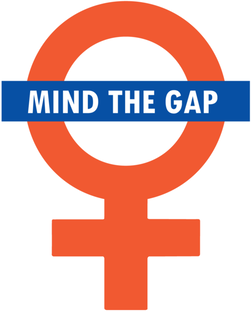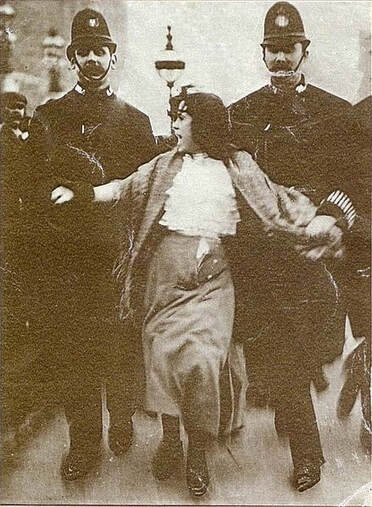Who Runs The World? …Girls?: Why Female Leaders Struggle to Mobilise Individuals Toward Equality1/7/2019 Have you ever noticed that women are typically the ones spearheading gender equality movements? Think of the suffragettes, the #MeToo, and #TimesUp movements, the March for Women; All fronted by women – but at what cost? Research increasingly shows that relying solely on female leaders is not enough to achieve equality. Perhaps in response to this, there’s been a recent upsurge in male-led initiatives, such as the HeForShe movement, and the Male Champions of Change initiative. Both of these call on men to use their privilege and power to place gender equality on the agenda. These types of initiatives aren’t just companies taking a stab at something new – they’re backed by social psychological research. For example, two recent studies looking at how leader gender affected individuals’ responses to calls for equality found that men and women were more likely to follow a male leader into action (Hardacre & Subasic, 2018; Subasic et al., 2018). Importantly, the only change between the study conditions was the leader’s name and pronouns (e.g., from “Margaret” to “Matthew”). Below, we talk about some of the reasons why female leaders struggle to mobilise people toward equality. “Think manager, think male”: Leadership prototype embodies masculine attributes In our heads, we hold a 'prototype' of particular categories and roles – a fuzzy set of characteristics, attitudes, and behaviours that define certain groups and occupations. For example, if you were to think of a leader, you might think confident, assertive, and even male. Turns out this “think manager, think male” mindset is pervasive. Numerous leadership theories emphasise the desirability of stereotypically masculine traits in leaders. In fact, female leaders are frequently seen as ineffective because individuals’ ideas of effective leadership overlap with agentic male stereotypes (assertive, dominant), rather than communal female stereotypes (warm, nurturing). Even when female leaders do adopt masculine behaviours (such as those seen as typical of leaders), they face backlash because they’re seen as “violating” their traditional caring stereotype. This signifies a Catch-22 situation whereby female leaders are “damned if they do and doomed if they don’t!” Female leaders face accusations of self-interest, while male leaders are seen as having something to lose. It’s also difficult for female leaders of gender equality movements not to appear self-interested and overly invested in their cause (with good reason, given that it IS in their group’s best interests to challenge the status quo!). Essentially, women’s efforts at reducing inequality can be seen as furthering the interests of themselves and their group, and the more women are viewed as trying to benefit their own group, the more cynicism and dismissal they encounter. This can undermine women’s efforts at social change because acts of self-interest are less convincing and influential than acts that seem to oppose one’s best interests. In contrast, because many view gender equality as a zero-sum game, when men challenge gender inequality they’re seen as having something to lose – namely the rights and privilege that accompany their membership of a high-status group. This ultimately affords men greater legitimacy and influence, and therefore greater ability to mobilise followers. Male leaders possess a shared identity with men and women, while female leaders only share an identity with women. Possessing a shared identity with those you are trying to mobilise is at the crux of effective leadership, because those considered “us” are considered more influential than “them”. Herein lies another problem for female leaders. In gender equality contexts, male and female leaders both share a cause with women engaged in gender equality movements whilst men benefit from an additional shared social identity with men.. Meanwhile, no such shared identity yet exists for female leaders looking to mobilise a male audience. Instead, they’re seen as outgroup members by men in terms of their gender group membership, but also in terms of shared cause because gender equality is often seen as a women’s issue and of no benefit to men. Conclusion Paradoxically, by virtue of their gender and the privileges it permits, male leaders seem to have the ability to undertake gender equality leadership roles and mobilise men and women more effectively than female leaders. Research suggests that, among other reasons, this is due to leadership prototypes typically comprising masculine attributes, female leaders’ inability to escape accusations of self-interest, and male leaders’ possession of a shared identity with both male and female followers. It will be interesting to see how long the male ally advantage persists: in the longer term, effective feminist leadership will presumably eliminate the ironic inequality. - Guest post by Stephanie Hardacre (University of Newcastle).
1 Comment
|
AuthorsAll researchers in the Social Change Lab contribute to the "Do Good" blog. Click the author's name at the bottom of any post to learn more about their research or get in touch. Categories
All
Archive
July 2024
|
Social Change Lab
Join our mailing list!Click the button below to join our mailing list:
Social Change Lab supports crowdfunding of the research and support for the team! To donate to the lab, please click the button below! (Tax deductible receipts are provided via UQ’s secure donation website.) If you’d like to fund a specific project or student internship, you can also reach out directly!
|
LocationSocial Change Lab
School of Psychology McElwain Building The University of Queensland St Lucia, QLD 4072 Australia |
Check out our Privacy Policy
Copyright © 2017



 RSS Feed
RSS Feed
